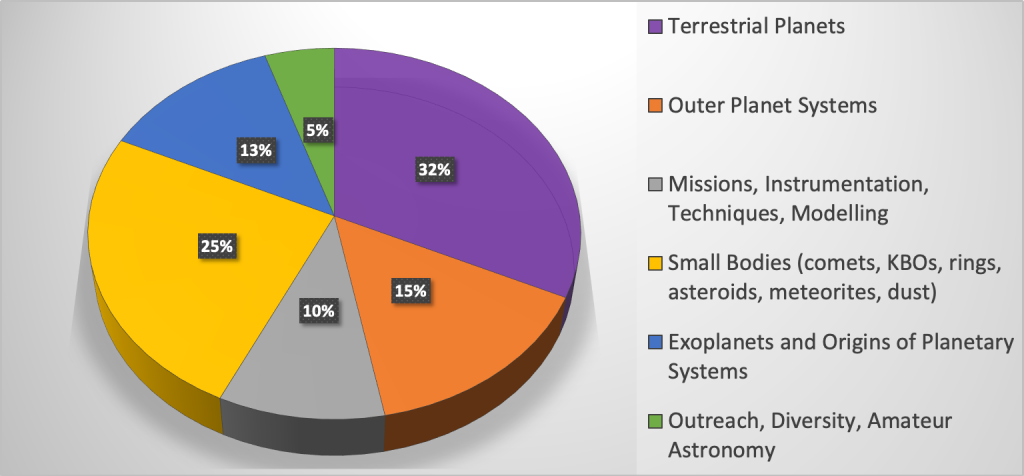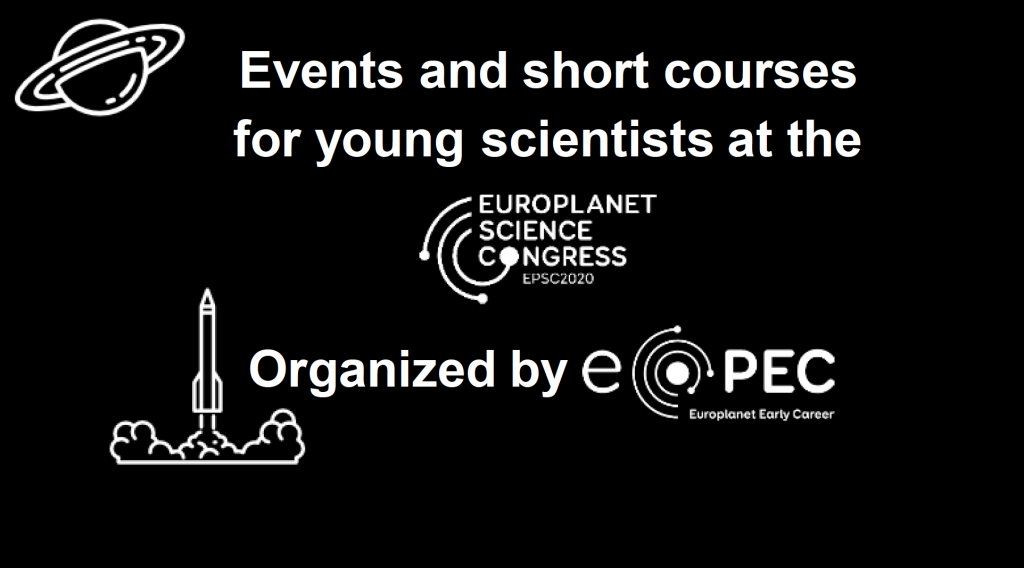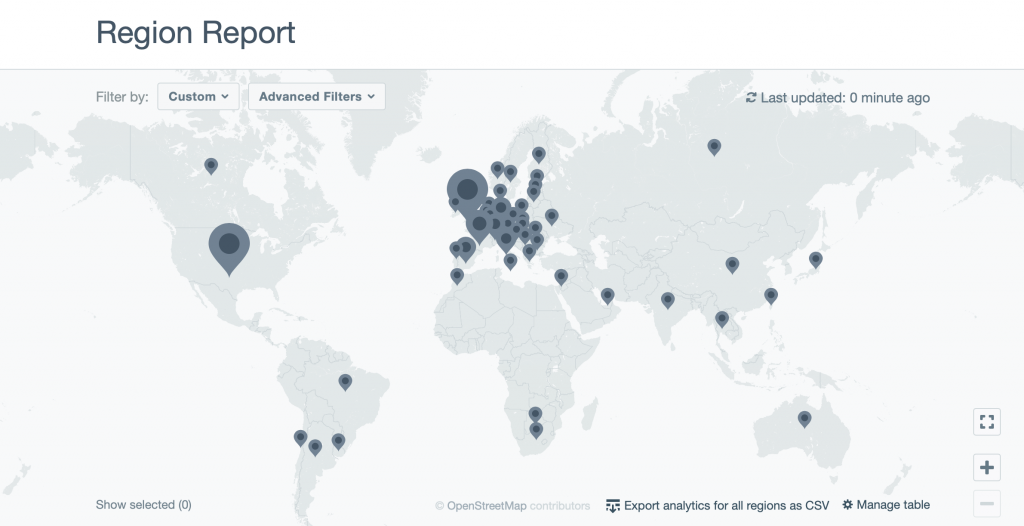A look back at EPSC2020
The deadline for feedback for EPSC2020 is tomorrow, so please fill in the form! To remind you of what happened at the meeting, here are a few of our highlights from the meeting.
1. Our first virtual meeting. Although Covid-19 meant that we couldn’t meet in person this year, EPSC2020 was an opportunity to explore virtual meetings. The format for the meeting was a hybrid of asynchronous scientific contributions and a live programme to promote discussion and highlight offline content. Lessons learned will be implemented in future virtual meetings and to provide some level of virtual access to EPSCs going forward.
2. Science. Over 125 hours of scientific presentations were contributed in 762 oral talks and 274 virtual posters. All content will be accessible through the EPSC2020 website until September 2021, and there will be ongoing access to public videos on Vimeo.

3. Policy makers and decision makers. EPSC2020 Community events included a “Dialogue with Agencies” session with representatives from ESA and NASA, as well as an “Industry and Policy” session that featured presentations by Members of the European Parliament and the European Commission.
4. Early Careers. Early careers were centre stage at the EPSC2020 meeting with the Europlanet Early Career (EPEC) network and the EPEC-EPSC Working Group organising short courses, contests, their General Assembly and a dedicated Slack channel.

5. Prize winners. Many congratulations to the winners of the Farinella Prize 2020, Jonathan Fortney and Heather Knutson, and the winners of the Europlanet Prize for Public Engagement 2020, Sheila Kanani and Susan Murabana. You can watch their prize lectures here.
6. Diversity and inclusion. Diversity and inclusion on the agenda for the meeting included a dedicated session, a keynote diversity lecture, a short course on mental health and splinter meetings on widening participation and mentoring.
7. Industry. Fostering industry-academic collaboration is a priority for Europlanet. The “Industry and Policy” and interview sessions highlighted the importance of big industry and SMEs to the planetary field.
8. Daily highlights. “Where are you and what’s the weather like?” Dr Niamh Shaw gave a sunny start to every morning with daily briefings and interviews with members of the community. Discussions ranged from the Chief Editor of Nature’s perspective on the effects of Covid-19 on publishing to updates on Mars exploration and a European return to the Moon.
9. Outreach Outreach was an important part of EPSC2020, with activities reaching out to communities and schools in Europe and around the world. 110 schools participated in “Europlanet Goes Live for Schools“, and entries for the #InspiredByOtherWorlds arts contest have been received from Europe, the US, South America and India. You can watch the entries for the #PlanetaryScience4All EPEC-EPSC video contest and find updates on the Planetary Science Wiki Edit-a-thon.
10. Global community. The virtual format #or EPSC has enabled us to reach an even wider global community than usual. Our registered participants came from 49 countries and EPSC videos on Vimeo have been viewed in 67 countries worldwide.

It’s wrap!!! Last session of #EPSC2020. Working as a social media intern @europlanetmedia with @micro_mario@jemckevitt @liviagia @anitaheward @tyseren@lucanardi_space @Dr_Niamh_Shaw has been awesome.
— Arti Dumbrepatil (@rtisciwrites) October 2, 2020
A dream team!!!! Myself #GoingVirtual stayed true to the essence 🙂 !!!! pic.twitter.com/I1S7DSl2qy

